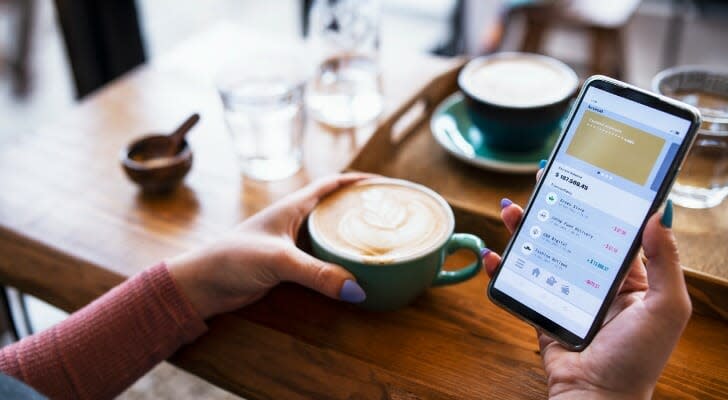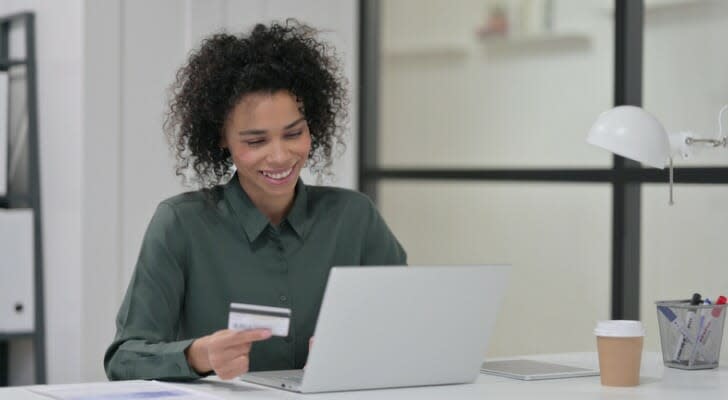Bank failures and economic turbulence have made bank depositors nervous – but what about banks where you can’t visit a branch or speak to a teller? Can you withdraw your money when needed and protect yourself from risks? While the rise of online banks has given customers increased savings and a higher APY, it also raises questions about accessibility and safety. However, online banks are safe as long as they are insured by the FDIC. Because online banks can get the same coverage as brick-and-mortar banks, their customers aren’t at risk of losing their deposits.
For personalized financial advice, consider speaking to a financial advisor.
What Are Online Banks?
Online banks are banks without physical locations. Instead, they run their financial services solely on the Internet. Therefore, they have fewer overhead costs and offer customers lower fees and better interest rates.
Because online banks don’t have branches, you can access your bank account through your mobile phone app or the bank’s website on a computer. In addition, most online banks offer free ATM usage at thousands of machines across the country.
How Online Banks Protect Your Money
Physical and online banks alike face the challenge of securing their customers’ deposits. Online banks have a unique situation because of their digital business model. Fortunately, they protect your money in multiple ways.
If you’re ready to be matched with local advisors that can help you achieve your financial goals, get started now.
Encryption and Two-Factor Login Authentication
You’ve probably heard about different companies being hacked for their data. Online banks have learned from data breaches in the last two decades and implemented the industry-standard 256-bit advanced encryption standard (AES) common to banks of all types. The U.S. military encrypts data similarly, meaning your banking information is well-secured.
Because encryption locks away data, hackers sometimes try to log directly into customers’ accounts by guessing passwords. As a result, online banks and many other companies have two-factor authentication. As the name implies, you need two login credentials to access your account.
For example, you’ll enter your username and password. Then, the bank sends a one-time login key to your phone or email address. You can only log in when you enter the key and you must complete this extra step each time you access your account. This way, hackers can’t get into your account if they happen to crack your password.
FDIC Insurance
In addition, online banks have Federal Deposit Insurance Corporation (FDIC) insurance. Traditional banks have identical coverage. This protection means the government will reimburse customers for deposits up to $250,000 if their bank goes out of business. Married couples with joint accounts receive $500,000 protection. As a result, you can bank without fear of losing your money if your bank goes belly-up.
Remember, traditional and online credit unions don’t receive FDIC coverage. Instead, they receive similar insurance from the National Credit Union Association (NCUA). This way, both bank and credit union customers have deposit insurance whether they bank in person or online.
How to Determine If an Online Bank Is Safe?
The internet is vast and not every website is secure or legitimate. Therefore, it’s crucial to take precautions when seeking an online bank. Here’s how to tell if an online bank is safe.
Check for FDIC Insurance
Online banks with FDIC insurance often proudly display this protection on the home page of their website. So, look over the webpage for an indication of FDIC coverage. If you can’t find it, you can double-check with the FDIC’s BankFind Suite using the bank’s name, certification number or web address.
Remember, some online banks are offshoots of conventional banks. In this scenario, they might share FDIC certification numbers and coverage.
Research the Website and Customer Feedback
Beyond the FDIC marker, take a further look at the bank’s website. You should see information on the available account types on the home page and a description of the bank on the ‘About Us’ page. Numerous mistakes in the copy and awkward language indicate rushed web development and operations may be similarly lackluster.
Furthermore, it’s a good idea to search online for customer reviews. You’ll find feedback from those who have used the bank’s services and quickly be able to tell if the bank is legitimate.
Review the Security Indicators
Online banks usually have a ‘Security’ page describing the measures they take to protect customers (the absence of such a page is a sign to take your business elsewhere). For example, the page should mention security efforts like two-factor authentication, fraud protection, reimbursem*nt for unauthorized transactions and FDIC protection.
In addition, a basic security indicator is the website’s name: it should begin with “https”, which means better encryption. On the other hand, a simple “http” at the beginning of the URL means the website is less secure.
Tips for Keeping Your Money Safe When Banking Online
Finding a safe, secure online bank doesn’t mean you’re invulnerable to hackers. Fortunately, you can take these additional precautions to bank as safely as possible.
Don’t log in to your bank account on public WiFi:Networks at airports, coffee shops and other public spaces are unsecured. As a result, thieves can easily steal your information if you enter it while using a public network. Instead, it’s best to bank on your home internet because it’s password-protected. If you need to access your bank on a public network, using a VPN can improve security.
Use complex passwords:Hackers are always trying to guess easy, sequential passwords. You can counteract their efforts by stringing together several unassociated words while throwing a few numbers and capitalized letters into the mix.
Enable two-factor authentication:This recent upgrade to cloud security is essential for safe banking. This way, a hacker can’t log in to your account even if they obtain your password.
Allow bank alerts:Your bank can send you text and email notifications for various activities on your account, including unusual activity. Therefore, if your account receives a login attempt from a new location or has a transaction outside your region, you’ll know within minutes and can take the appropriate steps to secure your account.
Be cautious with emails:While you might receive a legitimate alert email from your bank regarding your account, it’s best not to click links in banking emails because of the potential for scams. Hackers send authentic-looking emails with a message about securing your account, hoping you’ll click the link. If you’re concerned about your account, it’s best to go directly to your bank’s website or use your mobileapp. This way, you won’t engage with phishing links.
The Bottom Line
Online banks offer their services digitally and take security measures seriously for their customers. In addition, they receive the same FDIC insurance as brick-and-mortar banks, so you’re not at risk of losing your deposits. Remember, most physical banks face similar security challenges as online banks because they offer web banking services. Therefore, you can bank online with confidence; just remember to increase your safety with two-factor authentication, a long password and avoiding public WiFi networks.
Tips for Safe Online Banking
Banking online can help save money and provide better services. However, you’ll have the same challenges for your personal finances no matter where you bank: budgeting, retirement planning and saving money. Fortunately, a financial advisor can help you develop an individualized financial plan to help with all these things. Finding a financial advisor doesn’t have to be hard.SmartAsset’s free tool matches you with up to three vetted financial advisors who serve your area, and you can interview your advisor matches at no cost to decide which one is right for you. If you’re ready to find an advisor who can help you achieve your financial goals,get started now.
Switching banks or opening an account for the first time can be daunting. Whether you’re looking for an online or a traditional bank that works for you, here’s a guide on how to choose a bank.
Photo credit: ©iStock.com/ArtistGNDphotography, ©iStock.com/RollingCamera, ©iStock.com/Rowan Jordan
The post Are Online Banks Safe? appeared first on SmartAsset Blog.


